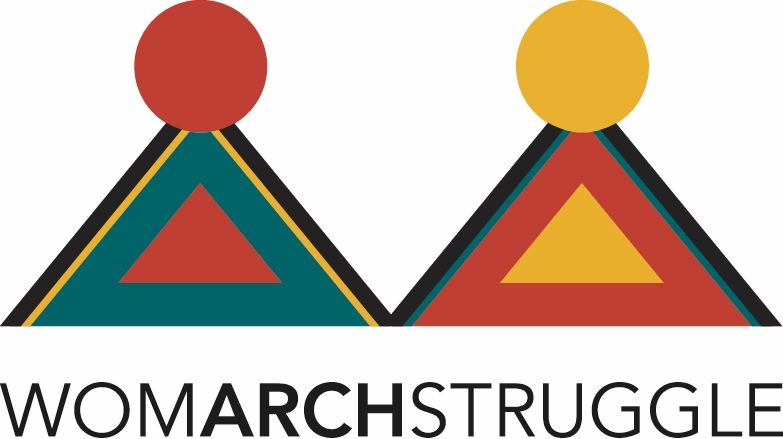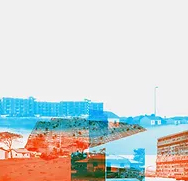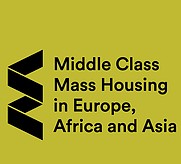Impacto dos trabalhadores nas obras públicas em Macau durante a administração portuguesa (1849-1999)
Investigadora
Como é que os trabalhadores das grandes infraestruturas e edifícios públicos em Macau durante o domínio português influenciaram a sua concepção e construção? Como se desenvolveram as relações entre as instituições centrais sediadas em Portugal (caso do Gabinete de Urbanização Colonial) e o Gabinete de Obras Públicas macaense, uma vez que este último foi influenciado por técnicos da China e Hong Kong? A investigação Colonial) e o Gabinete de Obras Públicas macaense, uma vez que este último foi influenciado por técnicos da China e Hong Kong? A investigação sobre as obras públicas coloniais (CPW) em Macau, sobretudo no século XX, é ainda escassa e pouco se sabe sobre a sua gestão e funcionamento laboral. Em que medida se diferenciou de outros antigos territórios coloniais? A disciplina da arquitetura, ao abordar as PW associadas ao colonialismo e à ocupação territorial em Macau, tem sobretudo estudado as equipas de especialistas, entre os quais arquitectos e engenheiros. Mesmo estudos sobre transferências de conhecimento conceptual entre técnicos de Macau, Portugal, Hong Kong e China são diminutos. Esta ênfase nos actores especialistas não considera a contribuição da força de trabalho anónima que labutou em infraestruturas e edifícios públicos. Continuam a faltar questões críticas sobre a mão de obra: quem eram estes trabalhadores? De onde vinham? Como é que foram recrutados e pagos? Que competências traziam? Que formação receberam? Que consequências tiveram as suas experiências de trabalho? Que conflitos provocaram? Como é que resistiram e colaboraram? Em resposta, LabourMap-Macao avaliará o impacto do trabalho em massa para inquirir o papel destes trabalhadores (ainda) invisíveis. Serão analisados planos directores, projectos de arquitectura, locais de construção e movimentos laborais para oferecer narrativas mais complexas sobre a relação entre a colonização portuguesa e história de Macau através das PW. O projecto visa criar uma linha de investigação que cruza arqu...
Informação do Projeto
2025-02-15
2026-08-14
Parceiros do Projeto
Architecture, Colonialism and Labour. The role and legacy of mass labour in the design, planning and construction of Public Works in former African territories under Portuguese colonial rule
Investigadora
A disciplina de arquitetura, ao lidar com Obras Públicas associadas ao colonialismo e à ocupação territorial, continua a centrar-se na análise da constituição das equipas de projeto, dos gabinetes de Obras Públicas coloniais e dos próprios arquitetos e engenheiros. Este foco na “elite projetista” ignora uma contribuição crítica para estas Obras Públicas, nomeadamente a força de trabalho responsável pela concretização destas estruturas. Assim, continuam a faltar questões críticas sobre a força de trabalho envolvida na materialização dos planos arquitetónicos: quem eram esses trabalhadores? De que grupos étnicos provinham? Como surgiam em contingentes que podiam agregar alguns milhares de indivíduos? Como se processava o seu recrutamento? Quais eram as suas expectativas? Como eram pagos? Que formação recebiam? Que repercussões tiveram estas experiências de trabalho (maioritariamente compulsivo)? Que conflitos provocaram nas sociedades coloniais? Como resistiam ao recrutamento? Como colaboravam? Como lidar com este legado?
Em resposta, o projeto ArchLabour irá desenvolver um novo enquadramento teórico para avaliar o trabalho massivo, com o objetivo de dar visibilidade a estes trabalhadores invisíveis, estabelecendo assim uma ligação entre a subalternidade histórica e a desigualdade que ainda assombra as comunidades que herdaram este passado. Através do estudo das diversas experiências coloniais nos países africanos que têm o português como uma das línguas oficiais (Cabo Verde, Guiné-Bissau, São Tomé e Príncipe, Angola e Moçambique), e cobrindo um amplo período que se estende desde a colonização moderna, iniciada após a Conferência de Berlim, passando pelas práticas de exploração do capitalismo industrial, até aos anos imediatamente seguintes à independência africana, o projeto cruzará a história da arquitetura colonial e o tema do Trabalho, com a história da Ciência aplicada à construção e os estudos pós-coloniais em arquitetura.
Informação do Projeto
2024-01-01
2028-12-31
Parceiros do Projeto
- DINAMIA'CET-Iscte (CT) - Líder
Beyond Modern Housing Heritage of Portuguese Influence, an Optimistic Architecture for Living. Comparative and Multi-Situated Perspectives on Modern Dwellings and Surroundings
Coordenadora Global
The project" Beyond Modern Housing Heritage of Portuguese Influence, an Optimistic Architecture for Living. Comparative and Multi-Situated Perspectives on Modern Dwellings and Surrounding" explores the innovative design of the modern lifestyle achieved in modern Portuguese expression. Reloading collective housing as the core of optimistic architecture aims to establish a framework of conceptual thinking on the significance of this housing heritage, its preservation, and some of the pivotal issues concerning renewal and valorisation. Considering Architecture as a geographically and temporally localised discipline, the guiding idea is to include projects from different territories to avoid generalisations in the interest of reviewing the facts themselves. Comparative studies on residential complexes built after the Second World War will assess the impact of the building boom in Lisbon, Recife, Luanda, Maputo and Macao. The proposal will address how the efforts of Portuguese architects changed colonial strategies regarding daily life. Studying modern domestic spaces will trace their growth and their undoubted contributions to raising challenges and procedures for preserving collective housing, which is an issue at the top of the contemporary agenda. The first level establishes a direct relationship between housing and modernity through spatial planning and architectural analysis, evaluating the quality of the built environment. At the intermediate level, the aim is to distinguish innovative techniques and sustainable approaches, which can be accomplished through a popular architecture survey within technological innovation. To address this question, at a deeper level, I will examine the resilience of these complexes, including the residents' aspirations today, by looking into urban space, typology, (in)formal distribution spaces, and current innovative constructive systems. Confirming that living in a well-lit, airy and energy-efficient house is a decisive variable in ...
Informação do Projeto
2023-06-01
2029-05-31
Parceiros do Projeto
- DINAMIA'CET-Iscte (CT) - Líder
Mulheres Arquitectas na antiga África Colonial Portuguesa: género e luta pelo reconhecimento profissional (1953-1985)
Investigadora
Há profissões como a arquitectura onde, apesar de tudo o que as mulheres conquistaram, uma hegemonia masculina persiste e não é muito permeável a revoluções de género. Este projecto exploratório visa identificar e descrever a luta das arquitectas na África de língua portuguesa pelo reconhecimento e representação da carreira, como consequência das desigualdades herdadas do passado colonial. A investigação tem continuamente colocado perguntas como: Quem eram as arquitectas que trabalhavam nos antigos territórios coloniais portugueses em África? Qual era a sua origem étnica? Qual era a sua origem profissional e educativa? Quais eram as suas lutas pelo reconhecimento profissional? Com a independência destes novos países, que papéis assumiram estas mulheres arquitectas? O projecto procura preencher uma lacuna na história dos países africanos colonizados por Portugal – Cabo Verde, Guiné-Bissau, S. Tomé e Príncipe, Angola, e Moçambique – abordando a condição das arquitectas precursoras entendidas como as primeiras profissionais a trabalhar nestes territórios. A oferta de trabalho durante o domínio colonial foi limitada às Obras Públicas Coloniais e aos escritórios familiares. A transição para a independência traria novidades, tais como programas de cooperação e a reforma dos serviços públicos. A investigação considerará estas mudanças na profissão e na cultura arquitectónica, questionando a forma como as mulheres sobreviveram e emergiram em condições de extrema vulnerabilidade laboral, no entanto, por vezes impondo-se pela falta de técnicos. O projecto irá registar 2 períodos históricos: 1953-1974, definidos pelo colonialismo tardio (desde a chegada da primeira arquitecta em África, até à independência africana); 1975-1985, caracterizado como o período pós-independência (a partir da transição governamental, até à primeira mulher formada no curso de Arquitectura na Universidade Agostinho Neto, em Angola). Diferentes tipos de carreiras serão abordados nesta linha cronológica...
Informação do Projeto
2023-03-01
2024-08-31
Parceiros do Projeto
- DINAMIA'CET-Iscte (CT) - Líder
- AHU - (Portugal)
- IPGUL - (Angola)
Controle e violência através da habitação e da arquitectura, durante as guerras coloniais. O caso português (Guiné-Bissau, Angola e Moçambique): documentação colonial e análise crítica pós-independência
Investigadora
Qual foi o papel da Arquitectura durante a guerra colonial (1961-74) no suporte ao colonialismo português? Partindo da rara bibliografia existente que interpela Arquitectura, Colonialismo e Guerra (He17;He18), mas também ponderando a relação entre Violência e Colonialismo (LuMo14), a pesquisa foca-se na produção de Habitação durante as guerras de libertação na antiga África Continental Portuguesa, e suas repercussões no período imediato às independências das nações da Guiné-Bissau, Angola e Moçambique. O projecto prevê 2 fases: 1) análise da produção da habitação realizada nos últimos 14 anos de colonialismo, considerando a composição da sociedade colonial e os 3 agentes de Obras Públicas Coloniais (OPC ) envolvidos, abordada na perspectiva do tratamento arquivístico e documental, cartográfico e descrição historiográfica; 2) identificação e análise crítica do estado desse parque habitacional no período imediato a 1974/75 (abandono, reconfiguração e apropriação) e seu contributo na formação de fenómenos como a desigualdade no acesso e na qualidade (plástica, técnica e funcional) da casa pelas sociedades pós-independências. A investigação questiona o papel da guerra na criação de mecanismos de controle, recorrendo à arquitectura e ao urbanismo, tendo a produção de habitação como centro. Observa 3 fenómenos: a) novos bairros de expansão urbana de classe-média e económicos, edificados sobre musseques e caniços, para controle de populações; b) colonatos em áreas económicas estratégicas; c) reordenamentos rurais resultantes de deslocações massivas de camponeses africanos em territórios de guerra. Traça uma leitura contínua entre colonização e pós-independência, relacionando o direito à habitação com as diferentes infraestruturas residenciais herdadas do período colonial. Na 1ª fase o estudo considera os 3 grupos de habitantes que caracterizaram as narrativas coloniais: a) colonos europeus, b) assimilados e c) populações africanas. Analisa as paisagens urbana e rural onde...
Informação do Projeto
2021-03-29
2024-11-30
Parceiros do Projeto
- DINAMIA'CET-Iscte (CT) - Líder
- DGLAB - (Portugal)
- EME - (Portugal)
- Gulbenkian - (Portugal)
- IPGUL - (Angola)
- UAN - (Angola)
- UEM - (Moçambique)
European Middle Class Mass Housing
Investigadora
The main challenge of this Cost Action is to create a transnational network that gathers European researchers carrying studies on Middle-Class Mass Housing (MCMH) built in Europe since the 1950s. This network will allow the development new scientific approaches by discussing, testing and assessing case studies and their different methodologies and perspectives. MCMH has been generally underestimated in urban and architectural studies and there is still a lack of comparative analysis and global perspectives. The number of transnational publications and scientific meetings has also been scarce. By crossing different approaches focus on Architecture, Urbanism, Planning, Public Policies, History, Sociology new concepts and methodologies will arise. Therefore, the Action aims to produce a wider understanding of MCMH sprawl, deepening on-going researches and focusing on the existing case studies. The current methodologies, surveys, catalogue and contextualization allow an initial mapping of relevant case studies, their diverse degrees of resilience and how they have been adapted to current (urban and social) conditions. It is intended to develop the knowledge of the interaction between spatial forms, behaviours and satisfaction and to combine methodologies of architectural and social analyses. The Action will be developed by three Working Groups, coordinated by a Core Group: Documenting the MCMH; Development of a specific set of (new) concepts for MCMH analyses; Leverage contemporary architecture interventions and Public Policies. In the Action will be involved researchers related to Mass Housing, MCMH Architecture and Urbanism, Planning and Public Policies, Sociological studies, Architecture History and Modern Heritage.
Informação do Projeto
2019-04-03
2023-10-02
Parceiros do Projeto
- DINAMIA'CET-Iscte (CT) - Líder
Conjuntos Habitacionais para a Classe Média na Europa, África e Ásia
Investigadora
Propõe-se uma análise comparada sobre o alojamento em massa da Classe Média (MCMH) na Europa, África e Ásia, introduzindo novos casos de estudo de modo a aprofundar investigações existentes, a partir de metodologias já testadas: catalogação e contextualização de conjuntos habitacionais construídos entre os anos de 1950/80 em Itália, Bélgica, Portugal, Angola e China. Pretende-se identificar os modelos habitacional e urbano e mapear as alterações surgidas após 50 anos de uso, para entender como se adaptaram às condições actuais (urbanas e sociais), apoiando acções futuras. Os casos de estudo localizam-se em Milão, Antuérpia, Lisboa, Luanda e Macau, em periferias que ajudaram a consolidar e foram selecionados pela: 1) escala; 2) número de habitantes; 3) acessibilidade; 4) qualidade urbana e arquitectónica. Partindo-se de um conhecimento em formação propõe-se agora uma leitura comparada que reflicta sobre a expansão das cidades no contexto do crescimento demográfico após a II Guerra Mundial. Irá analisar-se o impacto dos modelos residenciais desenvolvidos em contextos europeus e a sua transposição para antigos territórios coloniais (África e Ásia). Os estudos que analisam o panorama habitacional transcontinental sob uma perspectiva arquitectónica e sociológica estão limitados a alguns casos regionais, não assegurando uma visão global que inclua: 1) a descrição histórica da evolução física da casa, do edifício e do bairro; 2) levantamento e análise do perfil dos habitantes. Irá avaliar-se a capacidade de resiliência destes bairros, testando e propondo formas de prolongar a sua vida útil, através da actualização dos esquemas funcionais dos apartamentos (adequando-os às novas exigências), renovação de infraestruturas sanitárias e sistemas construtivos e através do conhecimento do perfil de ocupação. Dar-se-á enfase à forma de promoção (pública ou privada) e ao seu efeito sobre o perfil do habitante actual (pioneiro, recente, imigrante). Os bairros estudados caracterizam-s...
Trilogia Moderna Monográfica: Vieira da Costa, Simões de Carvalho, Castro Rodrigues
Coordenadora Global
The ongoing post-doctoral research on the Modern Movement in Sub-Saharan Africa aims to recover a vision of modern architecture as a formal system still in force today, connecting local culture with global influence [SFRH/BPD/117157/2016]. It focuses on Portuguese-Angolan tropical architecture's potential, highlighting Castro Rodrigues, Simões de Carvalho and Vieira da Costa. These three authors' legacy represents Portuguese-Angolan architecture's potential, underlining this singular heritage's iconic, tectonic and programmatic qualities and its political, social, disciplinary and ideological motivations. However, the fight for independence and the subsequent conflicts in Angola interrupted this impulse-momentum, recognizing modernity as an unfinished project. Despite recognizing the fragility of these buildings without maintenance for more than fifty years, the majority still show a surprising kind of resilience. The proposed project methodology highlights the constructive and formal elements that solve innovatively and efficiently the site's adaptability. It aims to contribute to the urgency of elaborating sustainable proposals in the framework of maintaining and re-using modern housing complexes in the 21st century.

 English
English






